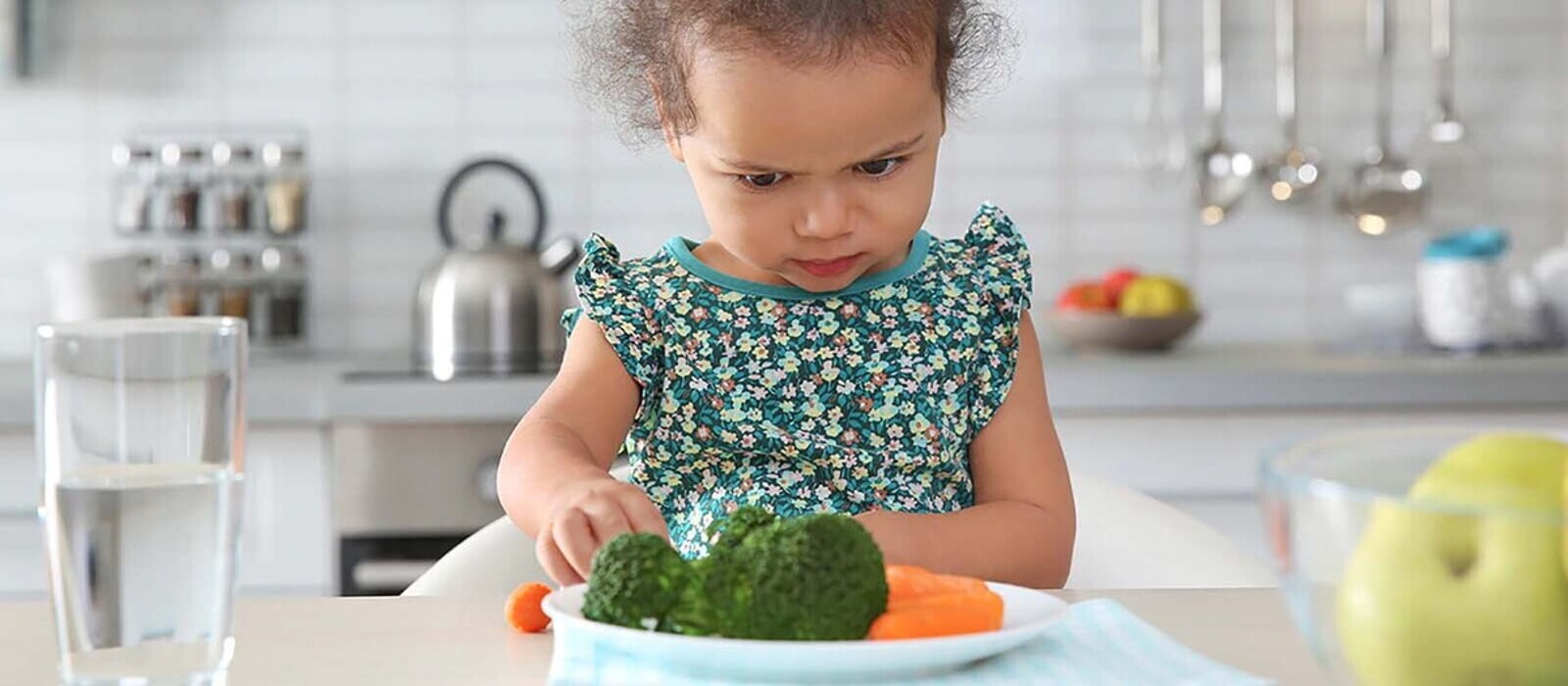When child won’t eat
Explore how to behave when your child refuse to eat and how to provide him or her with the necessary nutriments for the development process.
How serious a problem is if my toddler won't eat anything?
As long as your child does not show other signs of illness, it is not a serious problem. Children will not voluntarily starve themselves.
Remember—children between 1 and 5 years of age are only gaining weight at the rate of about 2 kg per year. As a result, they may not normally eat 3 large meals per day.
If she won't eat what I've given her, should I give her a substitute meal?
Don't provide an alternative if your child refuses what has been placed before her. If the child is hungry, she will probably be ready to eat at the next regular snack or meal time.
How long should I make her stay in her seat if she is not eating?
Thirty minutes is time enough for a meal. Even if your child has not eaten much, end the meal then without emotion.
Should she still get dessert if she doesn't eat her meal?
Don't use dessert as a bribe or reward for eating. If a dessert is part of your child's planned meal, don't insist that she clean her plate first. Research has shown that using persuasion or bribes to get children to eat often has the opposite effect of what is intended, and the child may eat less than if left alone.
Should I give her more vitamin supplements to compensate for the uneaten food?
No. Multivitamin and mineral supplements do not take the place of food. You should give no more than the recommended dose of supplement recommended by your health care professional.
Is there anything else that I can try?
Some suggestions:
- Make sure that your child is not drinking too much juice. Too much juice fills the stomach, dulls the appetite, and leaves little room for more nourishing meals and snacks. Offer water rather than juice when your child is thirsty.
- Serve small, attractive portions, emphasizing meat, eggs, and cheese. Don't expect your child to eat all of each food served.
- Try serving raw vegetables*; many children prefer them to cooked vegetables.
Above all, remember this: Your responsibility is to provide a well-balanced diet of appropriate foods. Your child's responsibility is to decide how much to eat.
*Avoid raw carrots because they are a choking hazard.
Share

The Magnificence of a Developing Child
A famous Italian psychologist, Professor Loris Malaguzzi wrote: “It’s necessary that we believe that the child is very intelligent and competent, that the child is strong and beautiful and has very ambitious desires and requests. This is the image of the child that we need to hold.” (Loris Malaguzzi, Reggio Emilia 1993)




